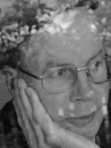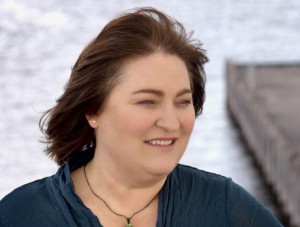
A trade with my dad (we both had accidentally purchased books we already owned) rewarded me with a copy of
Navigation by Judy Johnson.
The blurb states that: "
Navigation contains poems that are short, sharp pieces drawn from her abiding concerns with family, death, and love". As I sat at Central train station reading her explorations of these human concerns I felt that the bustling of life around me was the ideal setting to get lost in Johnson's words.
'Paper Dolls' is an honest scene from a childhood, exploring the innocence of youth and the conflict that can occur in adult relationships. I remember paper dolls and paper bikinis from my own childhood, the concentration and care needed to pop all of the pieces out and neatly fold the tags so that the 2D figures could be as glamorous as their glossy haired barbie doll cousins. Through her description of the attention given to these dolls Johnson explores the child's emotional response to the sound of fighting from the next room:
I push hard on the perforations.
She comes away in two pieces.
Johnson writes poignant images, such as: "I remember the ground / dog-nose damp beneath my feet", capturing the imagination of a child and the sometimes uncomfortable relationship between father and daughter in her poem 'A Month Before my Father Died'.
A poem that resonates with me is 'At the Temple of Sisters'. Someone close to me has been recently diagnosed with cancer and in this poem Johnson describes the cruelness of the disease:
But snares and exorcisms don't work.
There is nothing to offer your cancer
that it doesn't already have.
Johnson's longer poems in this collection are historical narratives of whalers, a whaler's wife and the Tuniit people of the Antarctic. Here is a harrowing description of doing the laundry on a whaling vessel from her long poem 'A Whaler's Wife at Sea':
...After they are dragged
back in I sew the body-eaten ghosts
of drowned sailors with thick twine
onto the strung line.
Warrick Wynne has written a review of
Navigation which can be found
here. He discusses the diversity of poems and the four parts within the collection, stating that: "[he] found it a little difficult to find the centre of it all, or something like the true voice, if indeed that’s the quest. The book is diverse and moves from the past to the present and back again fluently and is as comfortable with the story as the lyrical moment". For me the centre of the collection is this theme of family, death and love.
I agree with Wynne that the first section, 'Ties', contains the strongest poems of the collection. These poems delve into difficult and sometimes uncomfortable emotions and display an impressive control of language. 'Cannas' is a perfect example of Johnson's rich imagery and description of the external world, alongside an exploration of our 'inner worlds' that Peter Boyle has praised her for. She captures the flowers, their "Garfield-orange, / fresh-wound red, / lemon-spread yellow" colouring and their "elastic javelin" stems. At the same time, she writes of the complexities of coping with cancer, "terminal clusters" that "flows like heredity /through my dreams".
To purchase a copy of
Navigation visit 5 Island Press
here.
Johnson's most recent book
Stone Scar Air Water can be purchased
here.
.jpg)
.jpg)



.jpg)




